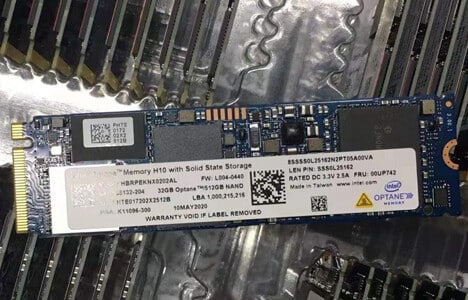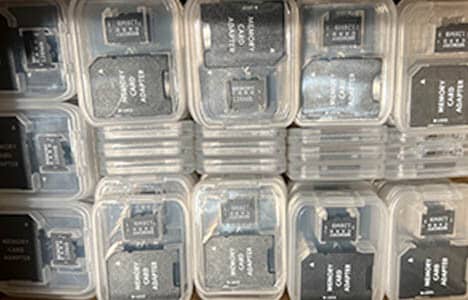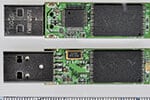Latest Posts
Realtek 2022 Quarter2 Briefing Card Reader Controllers
About Realtek
A leading global chip provider, Realtek Semiconductor designs and produces a wide range of chip solutions for online media, communication networks, computer peripherals, and multimedia applications. Its chips are used in such products as the 10/100/1000/2500M Ethernet Controller/PHY, 10/100/1000M/2500M/10G Ethernet Switch Controller/Media Converter Controller/Gateway Controller, Wireless LAN Controller and AP/Router SoC, xDSL, VoIP Solutions, Bluetooth, xPON, IoT Solutions, Automotive Ethernet Solutions, Hi-Fi Audio Solutions for Consumer and PC Applications, Card Reader Controllers, Web/IP Camera Controllers, LCD/ATV/DTV controllers and smart home hub controllers. Realtek can provide full-featured, competitive, and high-performance solutions thanks to its advanced knowledge in the design of RF, analog, and mixed-signal circuits, as well as its extensive experience in manufacturing and chip systems.
Realtek’s April revenue was NT$10.406 billion, up 33.22 percent year over year
According to ijiwei.com, the financial report recently provided by Realtek, a Taiwan-based chip maker, the company’s sales in April was NT$10.406 billion, a decline of 0.4 percent month-over-month but a 33.22 percent yearly growth. Its sales for the first four months totaled NT$40.163 billion, up 28.92 percent year over year.
According to the Central News Agency of Taiwan, Huang Yiwei, Realtek’s deputy general manager, said at a corporate briefing in April that the market has been unaffected by the Covid-lockdown-hampered logistics on the Chinese mainland, and that demand for communication and switch chips remains strong.
Due to the high demand for commercial computers and the constant update of chips, industry experts expect Realtek’s performance to continue to improve.
Realtek’s major business, according to reports, is the design and development of various IC components for wired and wireless communication networks, computer peripherals, and multimedia applications.
TCL and Realtek are being investigated by AMD under Section 337
According to recently released information of the United States International Trade Commission (USITC), AMD filed a 377 complaint against TCL Electronics and Realtek Semiconductor Corp. on May 5, claiming that the defendants exported, imported, and sold specific graphics systems, their components, and digital televisions incorporating the systems in the United States, infringing on multiple computer-graphics processing patents it holds with subsidiary ATI.
According to the USITC website, five patents have been infringed upon. AMD said that it had spent a significant amount of money developing these high-quality graphics systems, and requested that the USITC issue a limited exclusion order as well as a cease and desist order for the allegedly infringing goods within a 60-day investigative period. It also requested that USITC collect the corresponding security deposit.
More 16/12nm production capacity for Wi-Fi chips being sought by MediaTek and Realtek
Despite the fact that Wi-Fi core chips are in short supply for the first half of this year, MediaTek and Realtek shipments improved in the first quarter. Both MediaTek and Realtek, according to industry sources, are attempting to improve the production capacity of 16nm and 12nm Wi-Fi core chips.
According to Digitimes, many IC design firms have stated that, while 28nm is presently the most extensively utilized process node in production, it is expected to remain scarce in the next years. Some applications are migrating to more powerful process nodes in order to increase their capacity.
While Wi-Fi 6E products aren’t widely available this year, insiders predict that production will expand over the next two years using 16nm and 12nm techniques. Wi-Fi 7 products will employ a more advanced technique in the future. Despite the fact that the relevant demand would not grow significantly until after 2025, MediaTek and Realtek have already begun planning.
Only TSMC has reliable manufacturing capacity of the associated processes among Taiwanese businesses at the moment. As a result, some individuals are concerned that the supply of 16nm, 14nm, and 12nm chips may become increasingly scarce. Several IC design firms have pushed UMC to ramp up production of these chips in order to satisfy rising market demand.
Realtek and MediaTek both have great foundry capabilities. This advantage is apparent in the fact that their Wi-Fi core chips are being shipped. People acquainted with the Wi-Fi core chip industry believe that MediaTek’s Wi-Fi 6 shipments will be significant in the first half of this year, and that such shipments will be boosted by increasing supply of routers and notebooks.
Realtek is steadily beginning to produce chips for more mid-to-high-end products, in addition to keeping a stable share of the present market. It confirmed that its market share had increased at a prior investor conference.












Leave a comment